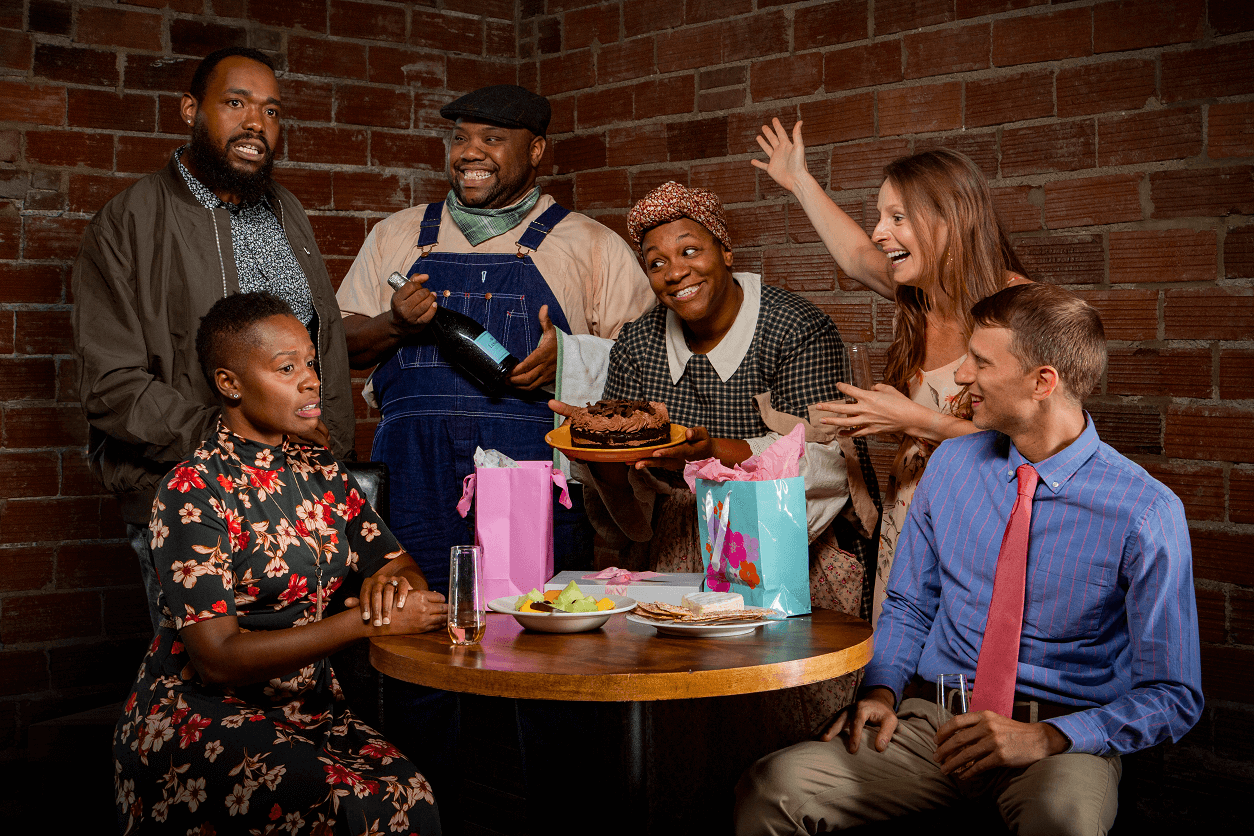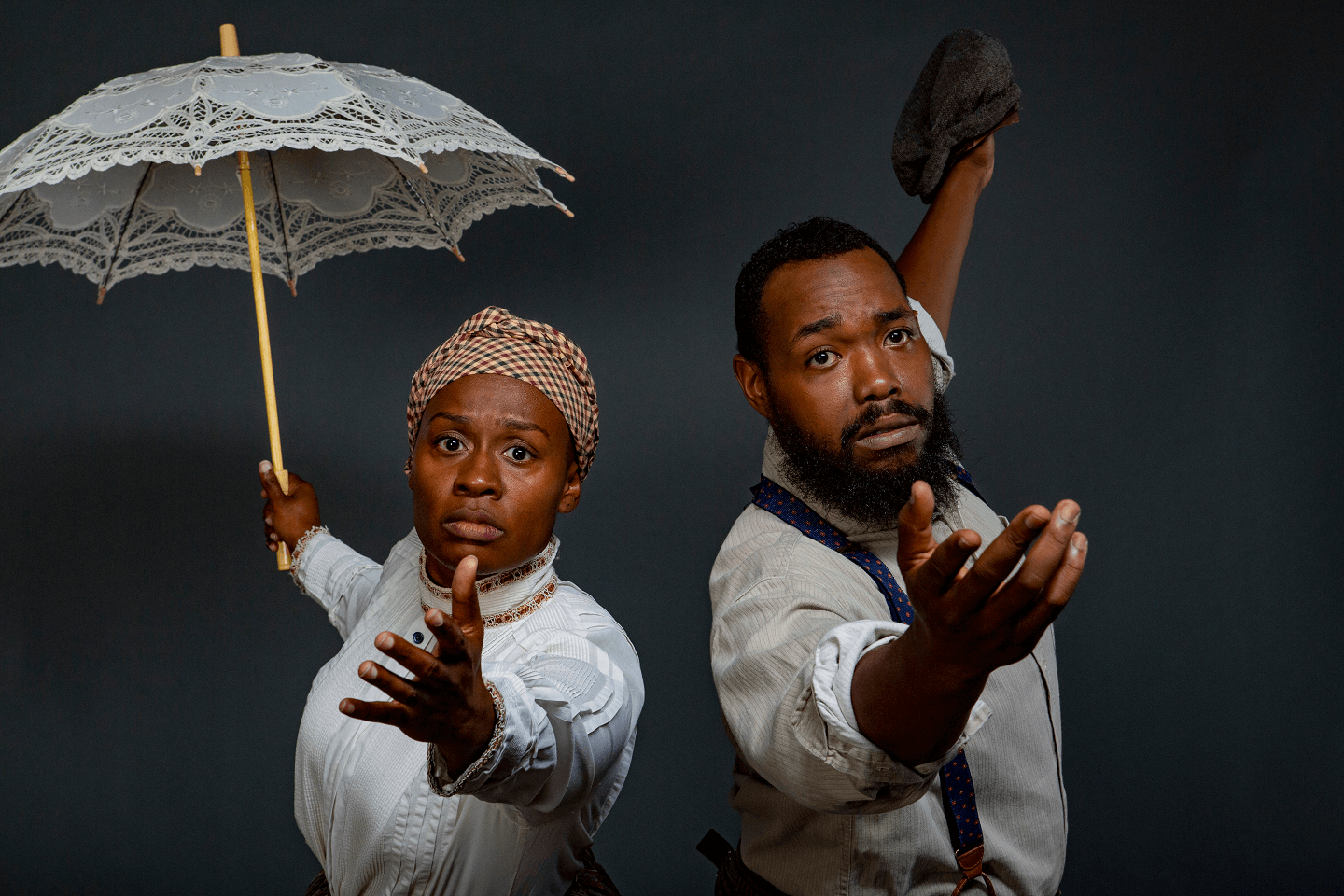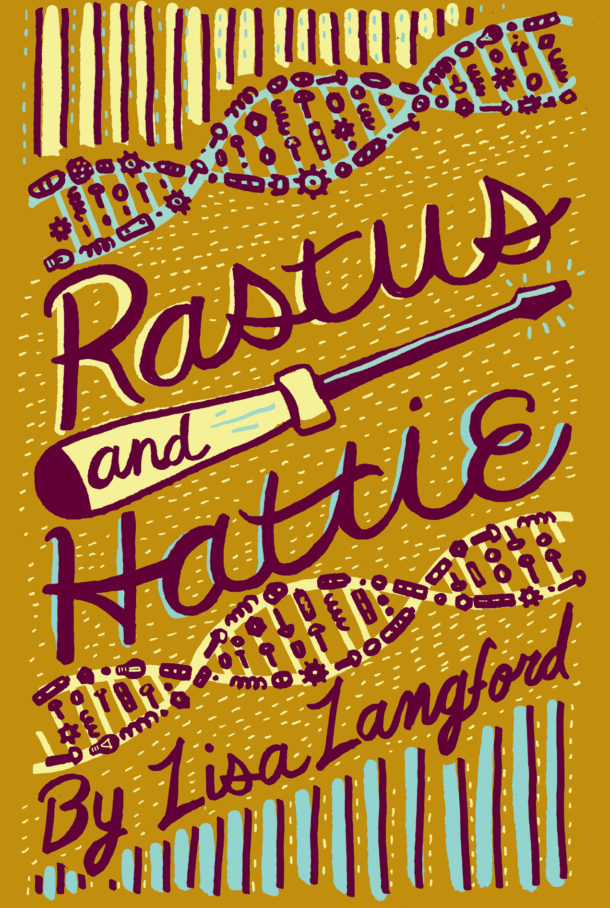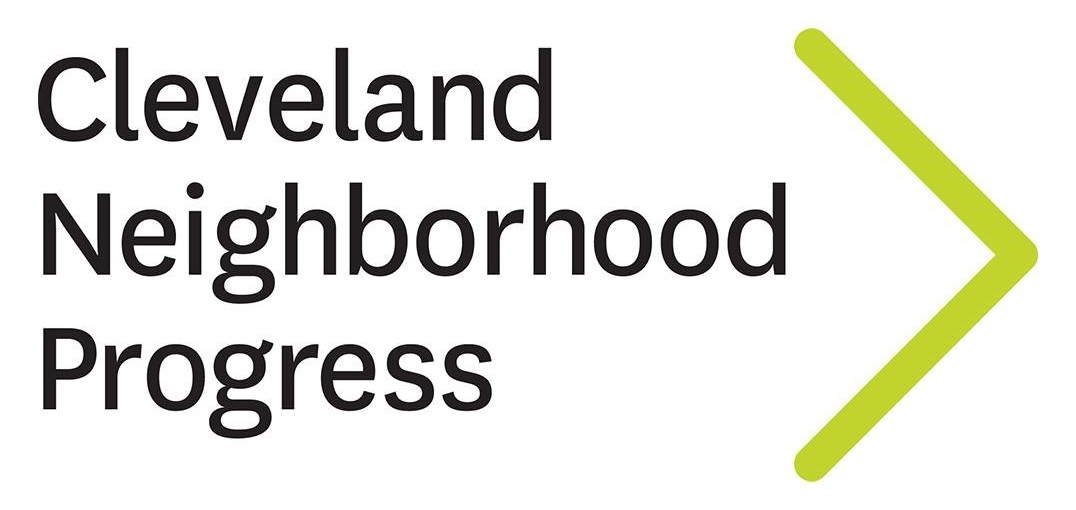Rastus and Hattie
The Creative Production Team Includes:
Raymond Bobgan – Producer
India Nicole Burton** – Line Producer
Leigh Tennant – Stage Manager
Maes Lunaria – Assistant Stage Manager
Benjamin Gantose – Lighting Designer
James Kosmatka – Sound Designer
T. Paul Lowry – Scenic & Projection Designer
Kerry Patterson – Costume Designer
Kelly Elliott – Fight Choreographer
Kyle Carthens – Run Crew, Understudy
Tiffany Trapnell – Run Crew
**2019/2020 NNPN Producer in Residence
POST-SHOW FACILITATED CONVERSATIONS
Stick around after the show on Saturdays and join CPT for post-show discussions about Rastus and Hattie and racial equity, led by Sherrie Tolliver.



ABOUT the PLAYWRIGHT: Lisa Langford
Lisa Langford is a writer and actor. Her play Rastus and Hattie is a 2019 Joyce Award winner (with Cleveland Public Theatre), and a finalist for the 2019 Eugene O’Neill National Playwrights Conference. Other plays include: How Blood Go, a 2019 August Wilson New Play Initiative selection at Congo Square Theatre in Chicago, IL and the Global Black Voices USA selection, London, UK; The Art of Longing, a Leslie Scalapino Award for Innovative Women Performance Writers finalist; and Revolt. Ing., a 10-minute Black womanist play featured in Black Lives, Black Words’ I AM…Fest at the Goodman Theatre. She is an active member of Dobama Theatre’s Playwrights’ GYM, the Dramatists Guild, and Zeta Phi Beta Sorority, Inc.

ABOUT the DIRECTOR: Anne McEvoy
While Anne’s worked at Cleveland Public Theatre many times over the years, Rastus and Hattie marks her first full production as a director at CPT. Elsewhere, Anne has directed for Beck for the Arts, Blank Canvas Theatre, Clague Playhouse, Ursuline College, St Joseph Academy, Playwrights Local, Educational Service Center of Cuyahoga County, as well as CPT’s Pandemonium and Big Box. In addition, she’s performed at numerous professional and non-professional theatres in Cleveland and Akron, and thanks all those who believe in the importance of live theatre and the power of sharing our stories.


A message from Raymond
Rastus and Hattie is simultaneously hilarious, disturbing, deeply moving… and filled with hope. After reading an early draft, it was clear Rastus and Hattie was meant for a robust life here in Cleveland and nationally. This is a play you’ll want to say you saw here first.
Lisa Langford takes a disturbing element from our history—a robot designed to look like an African American man—and made it into a bizarre, funny, quirky play where the robot appears today. The comedic power of Rastus and Hattie allows Lisa to investigate unconscious biases and insensitivities in a deep, profound, and impactful way.
Systems can’t change without individual responsibility and action. I think all of Lisa’s plays come down to the individual human, how they view the world, and how they come to a deeper understanding of themselves. This is one of the places where I see a lot of possibility for change, for personal responsibility, and for pride and a common sense of the value we each have to offer.
Raymond Bobgan
CPT Executive Artistic Director


An old photograph inspired Rastus and Hattie
“I remember thinking, ‘Why? If you’re going to make serving robots, why not make them like Rosie the Robot on The Jetsons?'” -Lisa Langford, Playwright of Rastus and Hattie
Lisa’s inspiration for Rastus and Hattie blossomed from a picture of a human-like robot developed by Westinghouse in the 1930s. This robot—with brown skin and clad in overalls—was designed to be part of a fleet of time-saving laborers in the future. Out of an infinite universe of ideas, these expert scientists fixated on the historical link between Blackness and servitude.
Click here to watch a short video about “Rastus Robot,” presented at the AI Now 2017 Experts Workshop focusing on Bias & Inclusion. (Content warning: the video contains some disturbing images).

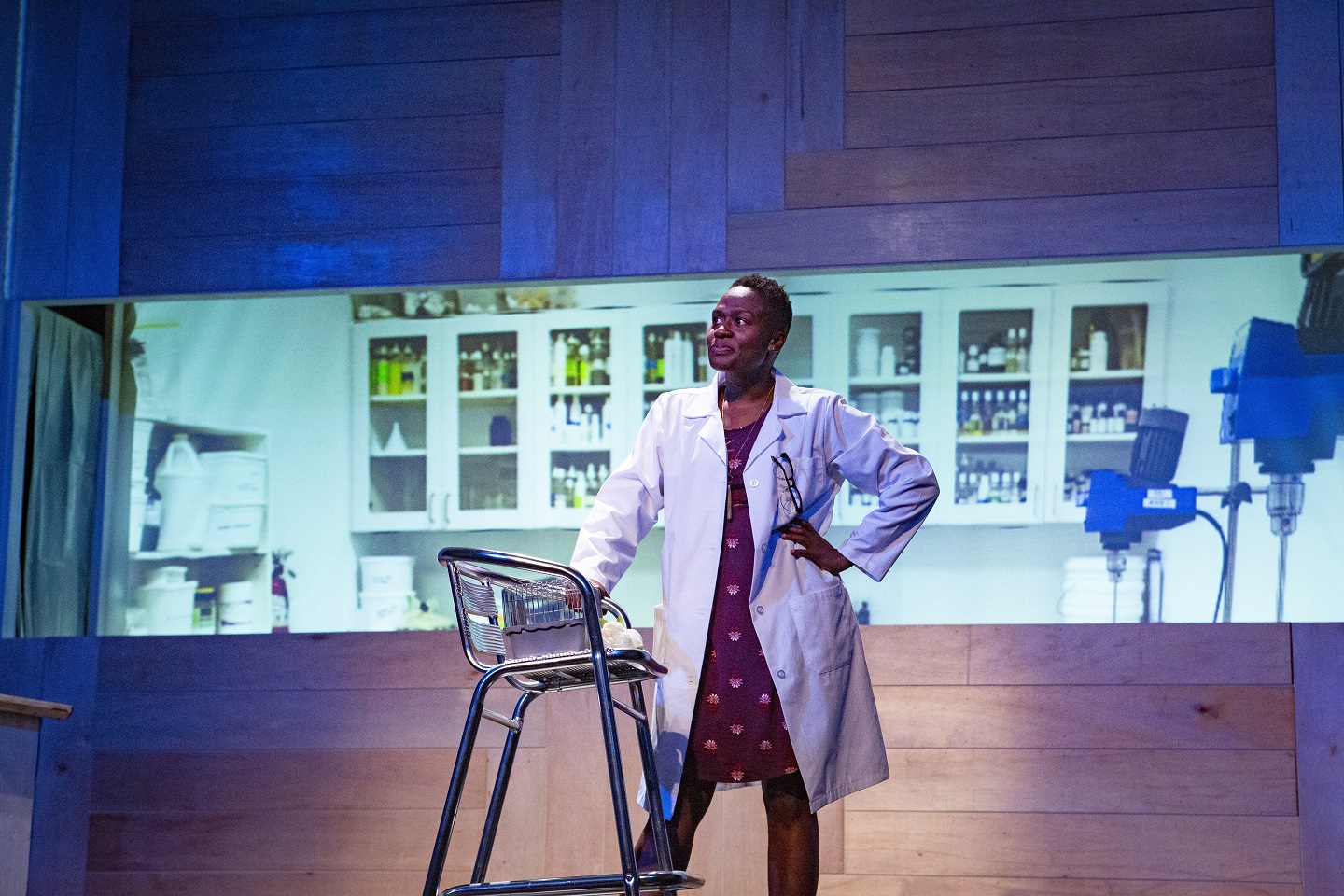
“We’re so ashamed of our history that we don’t investigate it. When’s the last time you ever had a conversation about it, or heard a lecture about it where you start to understand it?”
-Lisa Langford, Playwright of Rastus and Hattie
Confronting our history
In Rastus and Hattie, we meet four friends: Needra and Malik, who are African American, and Marlene and David, who are white. Suddenly, two “black” robots walk into their christening celebration, causing the friends to confront history, and ignorance.
“Rastus and Hattie (the robots) are history, and David, Marlene, Needra, and Malik are ways we deal with history. David and Marlene are well-meaning, well-intentioned people who just don’t know about this country’s history because it’s been hidden from them. Needra and Malik know about it but don’t understand and appreciate it… [When people watch Rastus and Hattie], I hope they laugh and see themselves.” -Lisa Langford

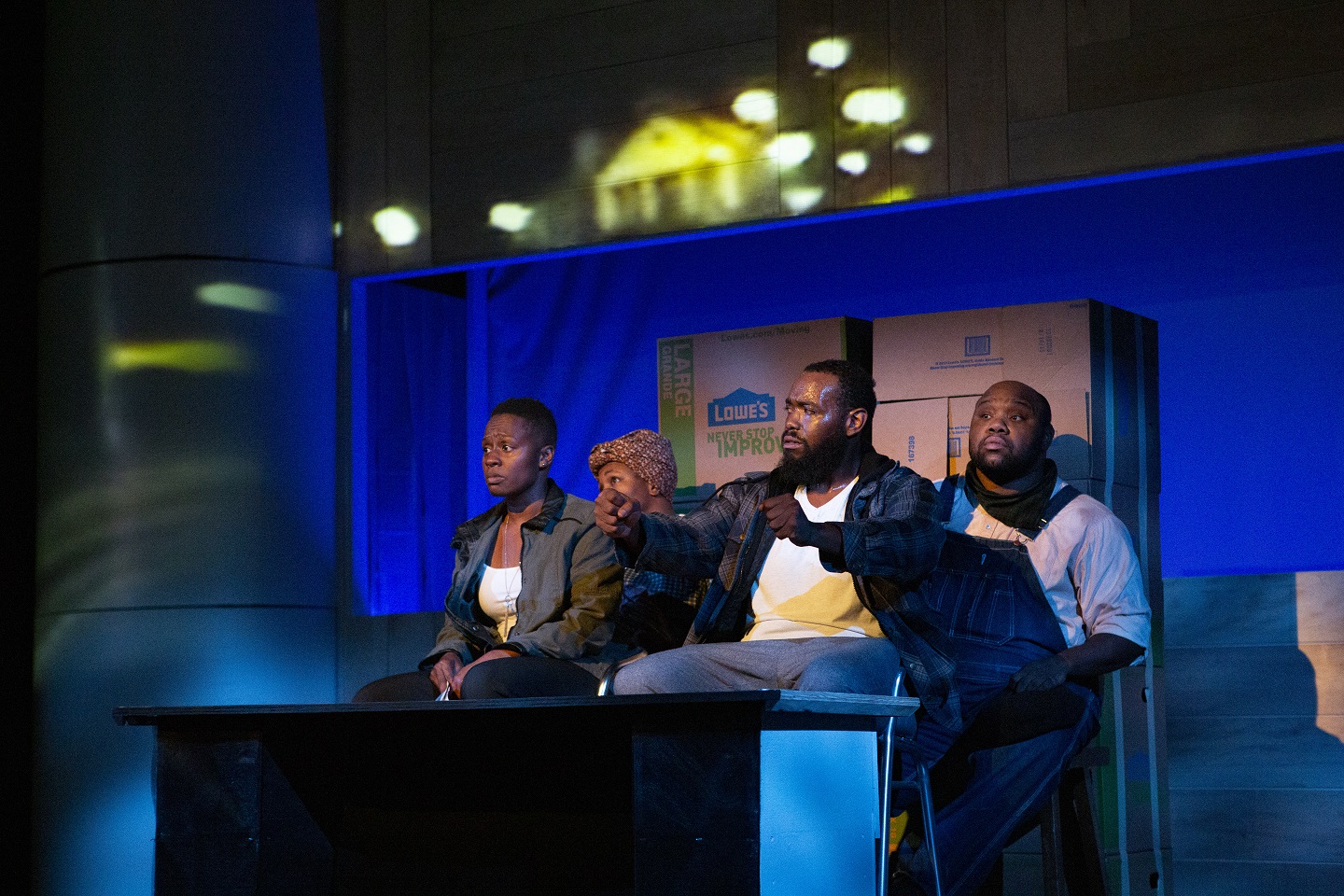
Reflections from the Director
The first time I encountered Rastus and Hattie, I sat there listening to this play that was like nothing else I had ever heard before. I said to Lisa afterwards, “Lisa, please finish this play. I just have to see it produced one day. I want a LOT of people to see it. It’s just got to be done.”—never imagining I’d have anything to do with it.
Rastus and Hattie makes it difficult for anyone to leave feeling it has nothing to do with them. Its thematic and emotional tentacles are many and specific and far-reaching, bringing into sharper focus how history affects us all, how we’ve been traumatized by it, how we are complicit, how history is revised and sanitized. Rastus and Hattie allows for some real conversation about what we can do about all of it.
Anne McEvoy
Director of Rastus and Hattie
If we could erase past and generational trauma, what would that mean?
“I think one of the strongest points Rastus and Hattie makes is that our past is with us always. Our stories start with the people who came before us. We stand on the shoulders of the people who came before us, under the feet of the people who came before us. And that’s in our bones and it’s in our marrow, and not just from a DNA/epigenetic/trauma standpoint, but it just is. Our stories define us… even in our efforts to transcend them. But that doesn’t mean they limit us.” -Anne McEvoy, Director of Rastus and Hattie
If we could eliminate traumatic heritage passed down to us from our ancestors, would we want to? How would that change us? One of the many themes Rastus and Hattie explores is epigenetics, or the theory that deeply distressing or disturbing experiences are passed down from generation to generation. To learn more about epigenetics and trauma, click here or on the image above.



The path to a world premiere: the journey of Rastus and Hattie
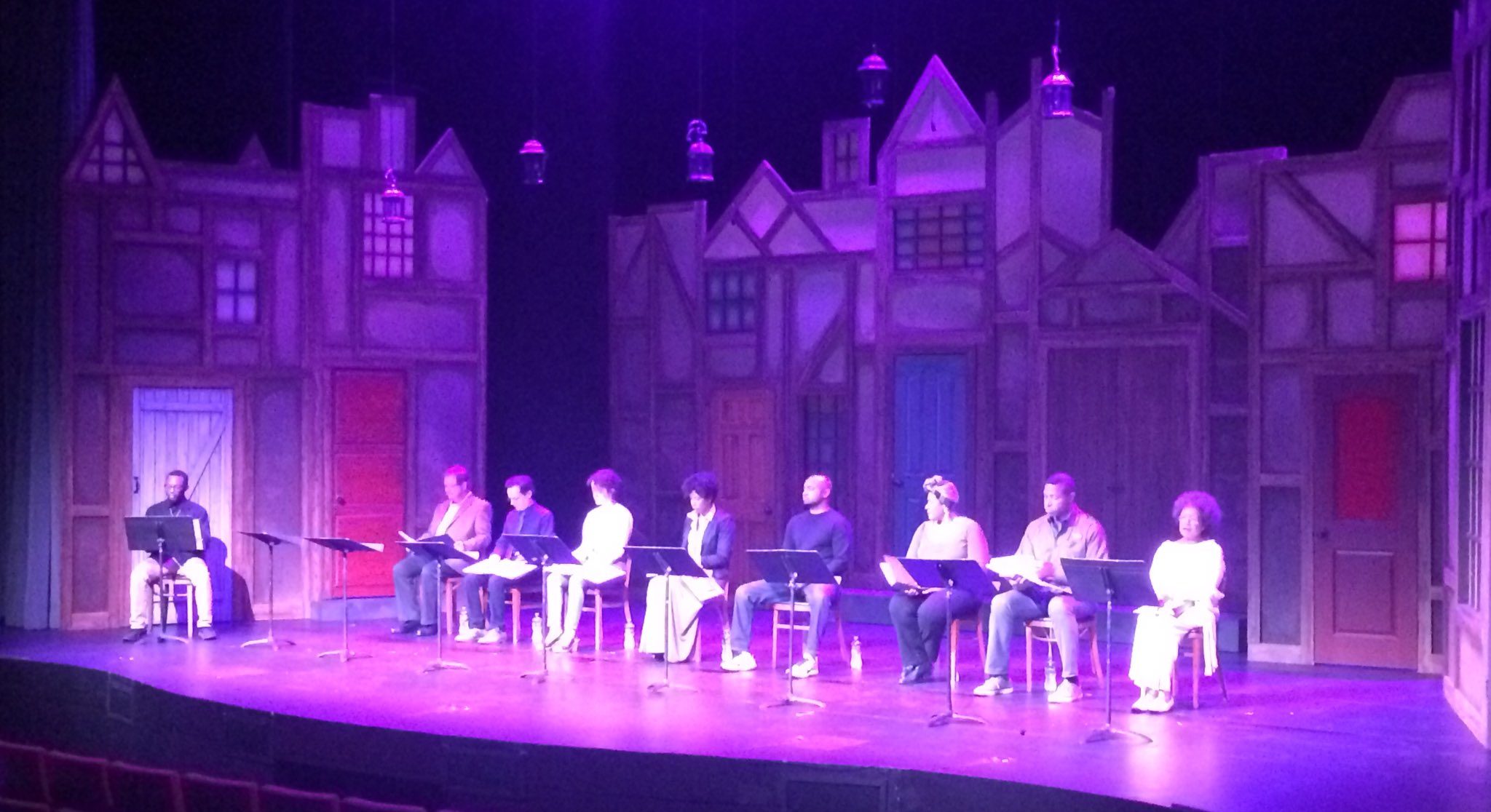 Over the past year, Rastus and Hattie has received a series of readings, allowing Lisa to see her play performed by different actors, discover what works and what doesn’t work on the page, and fine-tune the script into what you can experience next month at the world premiere.
Over the past year, Rastus and Hattie has received a series of readings, allowing Lisa to see her play performed by different actors, discover what works and what doesn’t work on the page, and fine-tune the script into what you can experience next month at the world premiere.
In June 2018, Rastus and Hattie traveled to Kitchen Dog Theater (Dallas, TX) as part of the National New Play Network’s (NNPN) Cross-Pollination Program, a partnership between CPT, Kitchen Dog Theater, and InterAct Theatre Company (Philadelphia, PA)—after which Lisa rewrote the entire second act. Then in December 2018, Rastus and Hattie was one of six new plays (selected out of 70 submissions) shared with more than 150 NNPN Core and Associate Members, Affiliated Artists, independent theatre-makers, and invited guests from around the nation at the annual NNPN National Showcase of New Plays in Sacramento. And in February 2019, Rastus and Hattie was featured at Unicorn Theatre (Kansas City, MO) as part of their In-Progress New Play Reading Series.
About Catapult
 Rastus and Hattie was developed as part of the Nord Family Foundation Catapult Fellowship. The most extensive of CPT’s development programs, Catapult is intended to move projects from early to mid-development phase to being “production-ready.” Projects may receive a series of readings, significant rehearsal time, and workshop productions. Catapult is funded by a multi-year grant from the Nord Family Foundation.
Rastus and Hattie was developed as part of the Nord Family Foundation Catapult Fellowship. The most extensive of CPT’s development programs, Catapult is intended to move projects from early to mid-development phase to being “production-ready.” Projects may receive a series of readings, significant rehearsal time, and workshop productions. Catapult is funded by a multi-year grant from the Nord Family Foundation.


Rastus and Hattie sponsors and Partners
